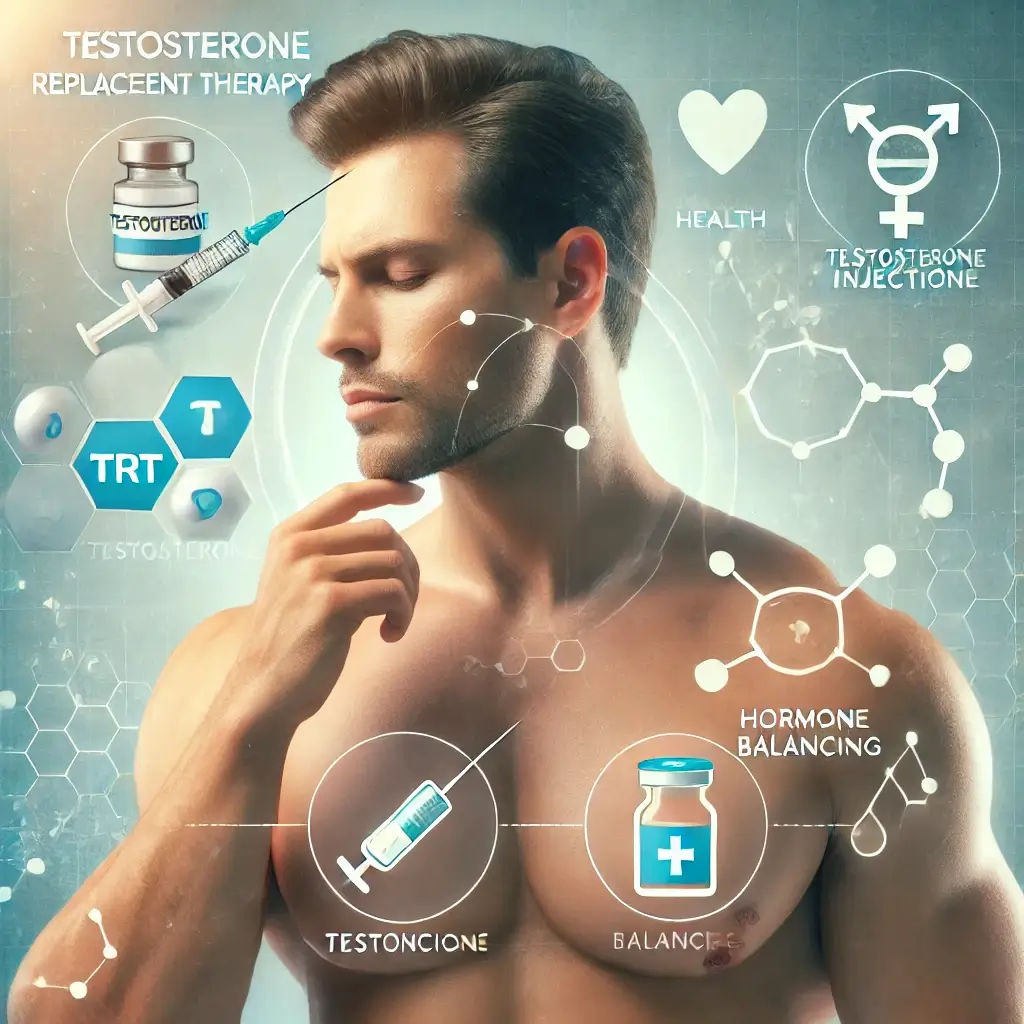Understanding Testosterone Replacement Therapy: A Comprehensive Guide
Testosterone Replacement Therapy (TRT) is a therapeutic option for men with low testosterone levels (hypogonadism) and symptoms like reduced libido, erectile dysfunction (ED), exhaustion, or mood disorders.
The Mechanics of TRT: Restoring Hormonal Balance
TRT aims to replenish missing testosterone through injections, gels, or patches. This can help restore testosterone levels to normal and may improve symptoms caused by low testosterone.
Key Benefits of Testosterone Replacement Therapy
TRT can boost libido and erectile function in males with hypogonadism. Some men report increased energy and improved mood. It may also enhance bone density and lower the risk of osteoporosis.
Critical Considerations Before Starting TRT
TRT isn’t for everyone. A doctor will perform blood tests to diagnose low testosterone and assess symptoms. It’s not a fountain of youth but aims to treat symptoms of low testosterone.
Potential Side Effects and Risks of TRT
TRT may increase red blood cell count, sleep apnea, or aggressiveness. It’s crucial to discuss these concerns with your physician. Misusing TRT for bodybuilding or sports performance has serious health implications.
Alternatives to Testosterone Replacement Therapy
Lifestyle changes like maintaining a healthy weight, exercising regularly, and getting enough sleep can naturally boost testosterone levels. Treating underlying conditions that cause low testosterone is also crucial.
Addressing Underlying Health Conditions
Certain medical problems can cause low testosterone levels. Treating conditions like obesity, diabetes, thyroid issues, or stress may improve testosterone production without TRT.
Holistic Approaches to Boosting Testosterone
A comprehensive approach, including weight loss, stress management, and treating underlying health issues, can be beneficial in increasing testosterone levels and overall health.
Resources for Further Information
Consult the American Urological Association (AUA) guidelines and the Mayo Clinic for more information on testosterone replacement therapy and low testosterone.
